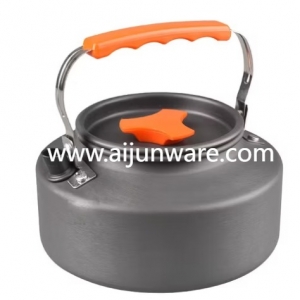The residential energy storage market is undergoing rapid growth, fuelled by the rising adoption of renewable energy, particularly rooftop solar systems. As homeowners seek greater energy independence and protection against grid instability, storage solutions are emerging as vital components of modern households. Innovations in lithium-ion batteries, along with supportive government initiatives, are driving affordability and efficiency. Growing environmental awareness and the integration of smart technologies are also shaping the transition toward cleaner, decentralized energy infrastructure.
Residential Energy Storage Market Size and Growth
The residential energy storage market size was valued at USD 2.82 Billion in 2024 and is projected to witness significant expansion, growing at a CAGR of 9.10% during the forecast period of 2025-2034. This growth is primarily driven by increasing urbanization, surging electricity prices, and a rising demand for energy independence among homeowners. The growing occurrence of power outages is further prompting consumers to adopt home battery systems that offer backup power and enhance the value of solar energy installations.
Government-backed incentives and renewable energy policies are crucial in boosting the deployment of residential storage systems. Continuous advancements in battery technologies—particularly lithium-ion—are enhancing affordability and performance. With the global focus shifting towards sustainability and decarbonization, the market is expected to reach USD 6.74 Billion by 2034, marking a pivotal role in shaping a cleaner and more resilient energy ecosystem.
Residential Energy Storage Market Trends
The residential energy storage market is being shaped by several key trends:
1. Rising Solar Adoption: Homeowners are increasingly pairing rooftop solar panels with battery storage to boost self-consumption and grid independence.
2. Grid Decentralization: Distributed energy systems are gaining traction, integrating residential storage into virtual power plants and peer-to-peer trading models.
3. Technological Advancements: Lithium-ion and solid-state battery innovations are enhancing storage capacity, safety, and longevity.
4. Smart Energy Management: AI- and IoT-powered energy systems are optimizing storage operations based on usage patterns and dynamic pricing.
5. Regulatory and Policy Support: Incentives like net metering and tax benefits are accelerating storage adoption alongside solar initiatives.
6. Energy Security and Blackout Protection: As power reliability declines, homeowners are investing in battery backup to maintain continuous energy supply.
7. Sustainability Focus: Environmental concerns are driving demand for renewable energy-based systems to lower carbon footprints.
Industry Segmentation
The market can be segmented based on type, system type and region.
Market Breakup by Type
• Lithium-ion Batteries
• Lead-acid Batteries
• Others
• Lead-acid Batteries
• Others
Market Breakup by System Type
• Standalone Systems
• Solar and Storage Systems
• Solar and Storage Systems
Market Breakup by Region
• North America
• Europe
• Asia Pacific
• Latin America
• Middle East and Africa
• Europe
• Asia Pacific
• Latin America
• Middle East and Africa
Market Opportunities and Challenges
Opportunities
1. Growing Solar Adoption – Rising rooftop solar penetration fuels demand for efficient residential storage solutions.
2. Government Incentives – Policies offering subsidies, tax credits, and net metering enhance affordability and accessibility.
3. Technological Advancements – Progress in battery design improves storage efficiency, durability, and cost-effectiveness.
4. Energy Independence – Increased desire for self-sufficiency drives storage investments, especially in unreliable grid zones.
5. Smart Home Integration – Demand for intelligent, connected energy solutions promotes residential battery system adoption.
6. Environmental Sustainability – Heightened awareness of climate change fosters the shift to low-emission energy systems.
Challenges
1. High Initial Costs – Upfront expenses remain a barrier despite declining battery prices.
2. Limited Consumer Awareness – Market penetration is constrained by lack of education on storage benefits and use cases.
3. Regulatory Barriers – Regional policy variations can impact implementation and profitability.
4. Battery Recycling and Disposal – Environmental and safety issues related to end-of-life battery management persist.
5. Grid Integration Issues – Technical and operational challenges affect seamless integration with existing grid infrastructure.
Residential Energy Storage Market Analysis
The residential energy storage market is showing strong momentum, driven by the global shift toward cleaner energy and a growing reliance on distributed power systems. Increasing adoption of rooftop solar, combined with the need for reliable and cost-effective backup power, is fueling demand for home energy storage. Urban growth, technological improvements, and the proliferation of smart home ecosystems are further supporting the integration of storage systems into modern residential settings.
Government policies and financial incentives are significantly contributing to market expansion by reducing entry barriers for consumers. Enhanced battery performance, longer lifespans, and reduced system costs are making residential storage more practical and appealing. Nonetheless, challenges such as high capital costs, regulatory fragmentation, and battery disposal concerns must be addressed. As innovation continues and awareness spreads, the residential energy storage market is expected to maintain a dynamic trajectory with immense potential for long-term growth.
Competitive Landscape
The key players in the industry includes:
• LG Energy Solution Ltd.
• Samsung SDI Co. Ltd
• Hitachi energy Ltd.
• Panasonic Corporation
• Tesla Inc.
• Saft Groupe SA
• Sunverge Energy LLC
• Deutsche Energieversorgung GmbH (SENEC)
• Others
• Samsung SDI Co. Ltd
• Hitachi energy Ltd.
• Panasonic Corporation
• Tesla Inc.
• Saft Groupe SA
• Sunverge Energy LLC
• Deutsche Energieversorgung GmbH (SENEC)
• Others







